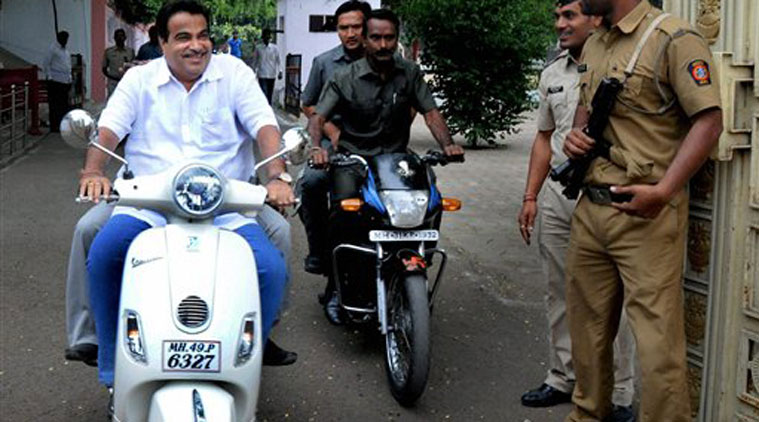
http://images.indianexpress.com/2014/10/gadkari.jpg
What would you do if someone offered to open a bank account for you, and then said you are fired from your job? BJP's decision to dilute MGNREGA is in a similar vein.
The scheme enacted in 2006, the largest such programme in the world, guarantees 100 days of work a year as an employment of the last resort . It has employed over five crore households for the past six years., the major beneficiaries being women, Dalits and tribals.

http://www.thehindu.com/opinion/op-ed/employer-of-the-last-resort/article5815810.ece?ref=relatedNews
Nitin Gadkari, Minister for Rural Development, has proposed to limit MGNREGA to 200 districts, to put a cap on government spending and to increase expenditure on material. Further, the clause for compensation due to delay in payment will also be removed..
Restricting the scheme to 200 districts from the current 643 would cut the government cost, but will definitely mar its soul. The main intention of the scheme is to provide a safety net to the needy. Making an assumption that the needy only reside in these limited districts would be far from truth.
Besides, cutting the cost on a programme which approximately costs 0.3% of the GDP through a cap on spending, is uncalled for. It is among the cheapest social welfare schemes around the world.
 http://www.thehindu.com/opinion/op-ed/learning-from-nrega/article6342811.ece?ref=relatedNews
http://www.thehindu.com/opinion/op-ed/learning-from-nrega/article6342811.ece?ref=relatedNewsChanging the labour material ratio from from the current 60:40 to 51:49,could eat into the share of the financing of the wage component and increase contractor involvement thus furthering corruption. One argument given is that the programme is not generating durable assets.Well as a matter of fact, under the Nirmal Bharat Abhiyaan last year 28% of the funds were spent on building toilets,which could be continued under the much publicised Swachh Bharat Abhiyaan .
There have been many limitations and flaws in this scheme. The guarantee of 100 days of employment has not been fulfilled yet. In most states it has not crossed 50 to 60 days a year. Corruption has permeated the process. Despite all this, it has had the largest reach.
One of the criticisms to this programme has been its impact on the agricultural labour. There have been allegations that the availability of the agricultural labour has reduced due to MGNREGA, as people already find other work through the programme. But most work happens during agricultural off season, and not peak season, so this argument does not stand.
Another example cited is that of the Varanasi weavers, by Maneka Gandhi. She said that many weavers of Varanasi have taken up MGNREGA work, affecting the handloom industry. Truth is that the weavers are out of work, starving and have resorted to this as a compulsion.
Thirty eminent economists recently wrote a letter to PM Narendra Modi raising concern about the proposed changes and the consequences therein. Brinda Karat of CPI(M) has written "Of what use is the ‘Make in India’ slogan when the Indian mazdoor, whose hands labour to produce, lives in destitution and distress?" Mr Jairam Ramesh, who oversaw MGNREGA’s implementation as a UPA minister claimed that rural development minister Nitin Gadkari “is a man in a hurry to dismantle the edifice of the flagship scheme”.
People have benefited from the programme, lifting them out of below $1 a day poverty,which has been lauded by the ILO and the World Bank. Distress migrations from many rural areas across the country have reduced and it has given some spending power to the rural workers as the rural wages have increased, thus pushing up the rural economy.
This, coupled with the much applauded Pradhanmantri Jan Dhan Yojana, wherein bank accounts were opened for the rural poor, would have further moblilsed and strengthened the rural economy. People would have started saving their earnings, however small, in their newly opened bank accounts. But with only 200 districts benefitting, many will be left out.
The MGNREGA scheme, which is essentially a law, is representative of India as a welfare state. Saying that we cannot afford it, is undermining its significance. The poorest of the poor have been given labour and dignity, instead of just doling out free money. It has ensured them at least one square meal a day. Do they have any space in the 'development' envisaged by our PM? Or is he going to look the other way and be a Marie Antoinette?
No comments:
Post a Comment